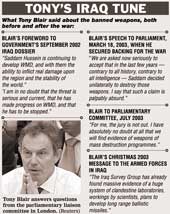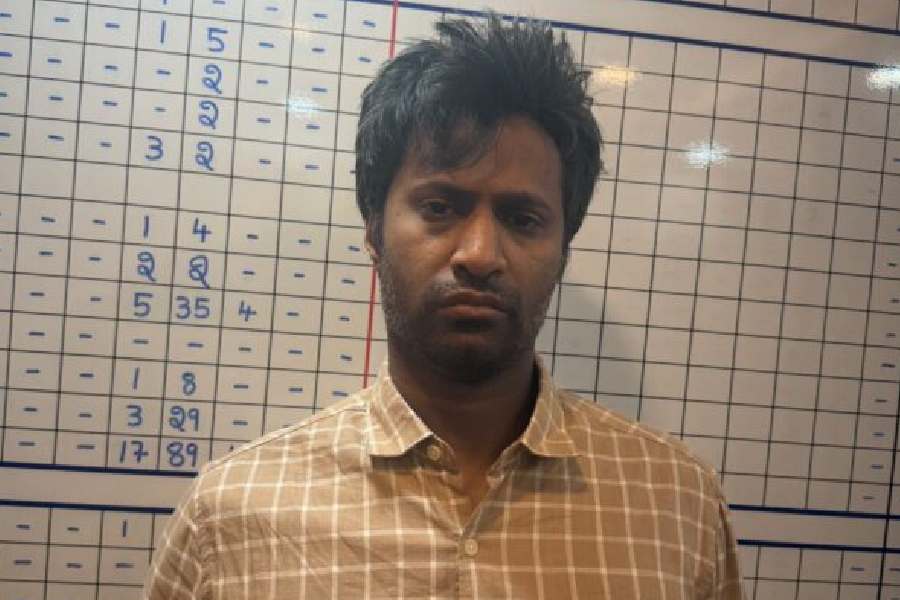 |
London, Feb. 3 (Reuters): Tony Blair bowed to growing pressure today, calling an inquiry into the quality of British intelligence on banned Iraqi weapons but a key Opposition party refused to take part.
The Liberal Democrats said the investigation should examine the political decisions taken to wage war, rather than focus exclusively on problems with information from spies. Blair refused, sparking criticism that the probe would be too narrowly defined to be meaningful.
“I think it is right... that we have a look at the intelligence that we received and whether it was accurate or not,” Blair told a parliamentary committee. “We do not in my view need an inquiry into the political decision to go to war.”
Until now, Blair has firmly resisted calls for an inquiry.
But clamour has grown as nearly 10 months after Saddam Hussein was toppled, no biological or chemical weapons — the reasons Blair gave for war — have been found in Iraq.
Prior to the war, he said Iraq posed a “serious and current” threat and that it had continued to produce banned weapons.
Foreign secretary Jack Straw told parliament the inquiry, headed by former chief civil servant Lord Butler, would report by the summer, well before next year’s expected election.
It will hear from witnesses in private and investigate the accuracy of intelligence on Iraq’s banned weapons and examine any discrepancies between it and what has been discovered since the end of the conflict.
The official government line that evidence of banned weapons could yet be found has proved increasingly difficult to sustain since chief US weapons hunter David Kay quit his post, saying he believed Iraq had no stockpiles of illicit weapons.
“The government recognises there are... entirely legitimate concerns about the reliability of the original intelligence which have been heightened by Kay’s evidence,” Straw said.
President George W. Bush’s decision yesterday to set up an independent commission on US intelligence turned up the heat on Britain to do the same although Blair denied being wrongfooted by Washington’s move. Conservative foreign affairs spokesman Michael Ancram said Blair had performed a “spectacular U-turn”.
The failure to find weapons of mass destruction in Iraq has dealt a major blow to Blair’s credibility with the UK public.
The new inquiry will frustrate his attempts to draw a line under the most torrid period of his nearly seven years in power.
Critics say the government is preparing to heap blame on Britain's intelligence services.
“An inquiry which excludes politicians from scrutiny is unlikely to command public confidence,” Liberal Democrat foreign affairs spokesman Menzies Campbell said. Blair, he added, should be willing to submit to scrutiny of his “competence and judgment”. The LibDems’ refusal to take part will embarrass a government seeking a cross-party probe.
Last week, the Prime Minister was exonerated by judge Lord Hutton’s report on the suicide of a weapons expert, who was outed as the source of a report that Blair exaggerated the threat posed by Iraq to justify war. Blair said Hutton had cleared the government of acting improperly in the run-up to war, so the new inquiry should not return to that question.











